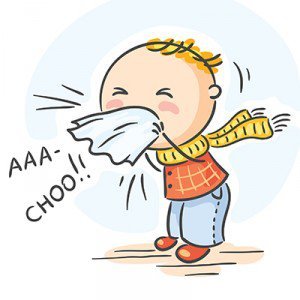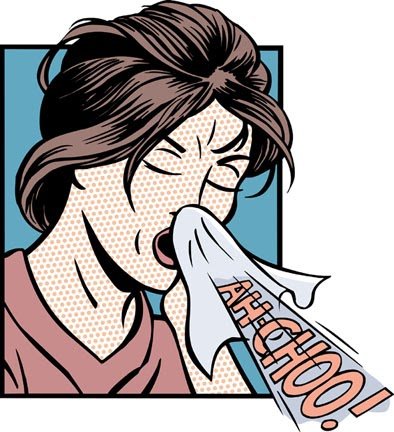Aaaaaaaaaaaaaaa-chus!
If you just sneezed, you probably had something that irritated you or tickled you inside your nose. Sneezing is your body's way of eliminating nose irritation.
When something tickles the inside of your nose, you receive a message. This center sends a message to all who need help to create the complicated and amazing process we call.

What is a sneeze
A sneeze is a convulsive reflex act of expulsion of air from the lungs through the nose, fundamentally, and, eventually, through the mouth. Usually, caused by foreign particles that cause irritation of the nasal mucosa. Sneezing can spread diseases by launching vectors in the air.
what is your function?
The function of the student's center is to do all your work together, in the right order, so that the irritation comes out through your nose. And what if it flies - sneezes can expel small particles from the nose at a speed of up to 160 kilometers (100 miles) per hour!
Almost everything that can irritate the inside of your nose can start in a sneeze. Some common things are dust, cold air and pepper. When you have a nose cold, you have a virus that has temporarily settled there and is causing a lot of swelling and irritation. Some people have allergies and sneeze when they are exposed to certain things, such as animal dander or pollen (which comes from some plants).

Do you know someone who sneezes when they are sold outdoors and the sun is shining?
Approximately one in three people when exposed to bright light. These sneezes are called photic sneezes (photic means light). If you have these sneezes, you have inherited them from your father or mother. You could say it's a family thing. Most people have a sensitivity to light that can trigger a sneeze.
Why do sneezes occur?
Sneezing is a convulsive reflex of expulsion of air from the lungs through the nose and mouth; In general, they are caused by foreign particles that tend to produce an irritation of the nasal mucosa that recognizes them as foreign bodies. In fact, sneezing is a defense mechanism of the respiratory system, which aims to eliminate harmful substances.
When someone sneezes, those around him say "Jesus" or "Health", depending on the country and tradition. This is because in the sixth century Pope Gregory ordered to say "May God give you Health" every time someone is. At that time there was a great epidemic of plague. In Spain, after an epidemic in 1881, it used to be said "God, Jesus, Mary and Joseph help you". At present we have abbreviated "Salud" and "Jesús".

Have you noticed that when we sneeze we always close our eyes?
The explanation is simple. As it is written in a reflex act of protection, the organism is protected from the infections or contagions that they will receive if they expel the air with their eyes open. In addition, if part of the air that comes out of our nose and mouth "escapes" to the eye cells, if irreversible damage is caused.
Some believe in a myth about sneezing that is worth saying is false: the heart did not stop when we are having nasal spasms. Yes it can produce changes in the blood pressure, but not stop pumping it to the whole body.
Is it possible to avoid sneezing?
The answer is yes. But, attention, that some indicate that this is not good for our health. Preventing a sneeze can bring bad consequences. There is a distinction: it is one thing to suppress sneezing when it is still a desire (when the tickling begins in the nose) and a very different thing when it is evident. In the latter case, it is best to allow it.

http://kidshealth.org/es/kids/sneeze-esp.html
http://www.elnuevoherald.com/vivir-mejor/salud/article19065759.html
https://mejorconsalud.com/por-que-estornudamos-se-puede-prevenir/
